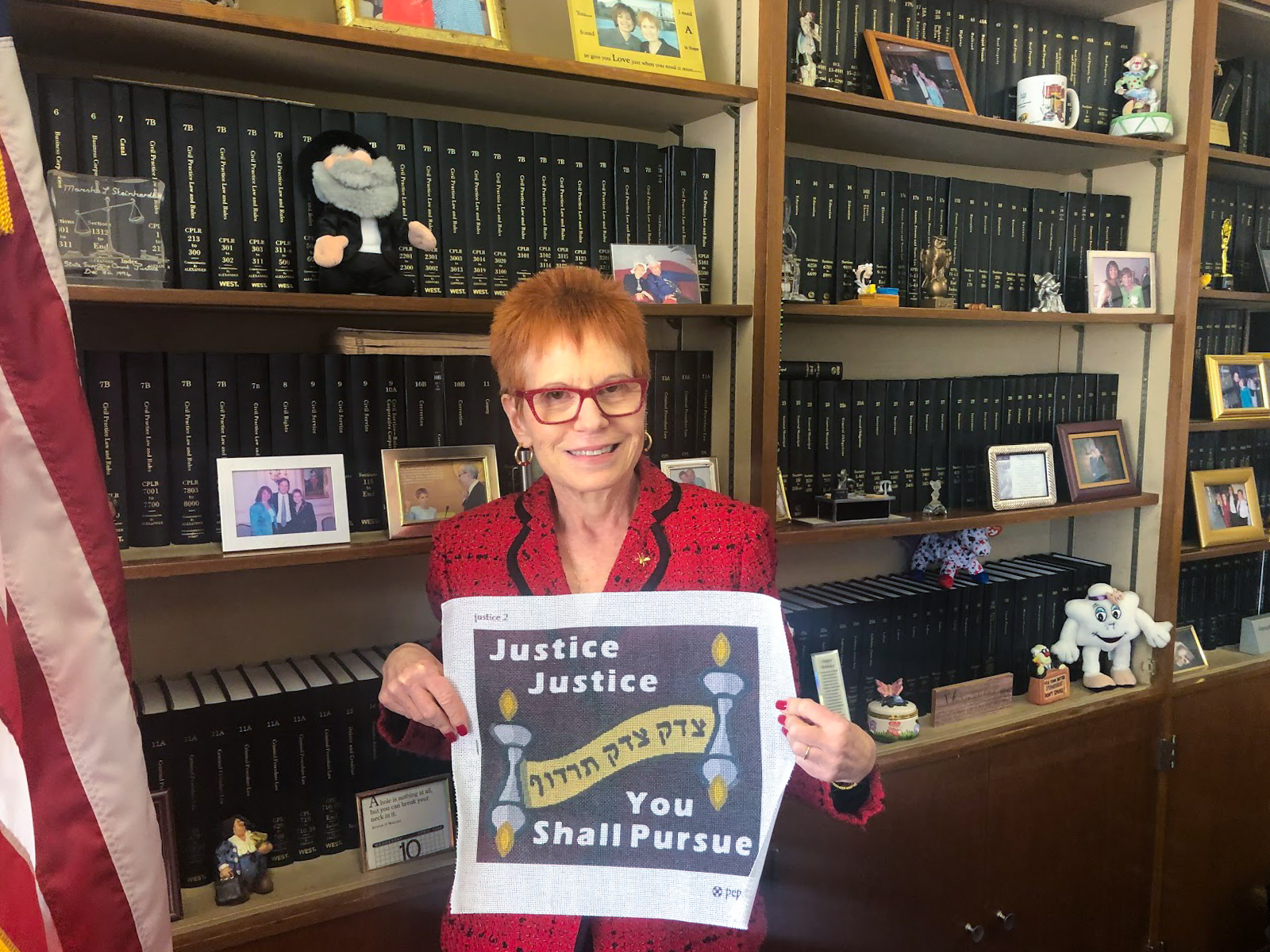Justice Marsha Steinhardt takes lessons from surviving cancer with her to the bench

Justice Marsha Steinhardt, who grew up on Carroll Street in Crown Heights, has always been a positive and bright person. In her office at the Kings County Supreme Court, she sits working on her needlepoint beneath words written in Hebrew and English: “Justice, justice shall you pursue.” The Judge says she lives those words every day on the bench.
Her career started at Brooklyn College where she decided to steer clear of traditional professions that women went into at the time, to go into something different.
“I didn’t want to be a teacher,” she said. “Most women at the time went into education.”

Brooklyn Boro
View MoreNew York City’s most populous borough, Brooklyn, is home to nearly 2.6 million residents. If Brooklyn were an independent city it would be the fourth largest city in the United States. While Brooklyn has become the epitome of ‘cool and hip’ in recent years, for those that were born here, raised families here and improved communities over the years, Brooklyn has never been ‘uncool’.